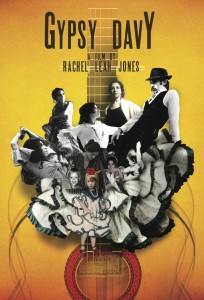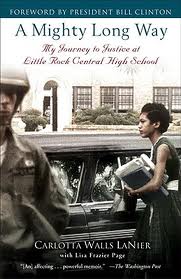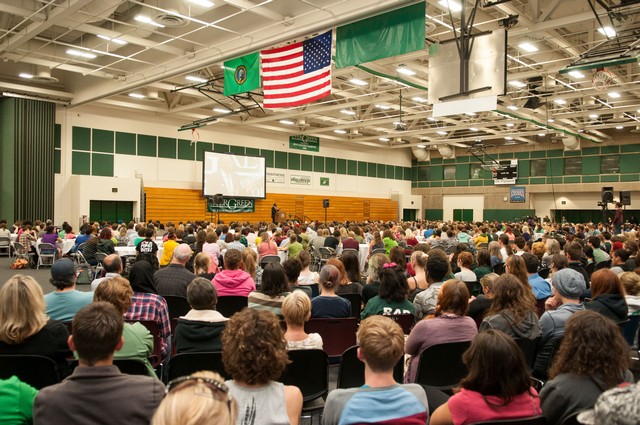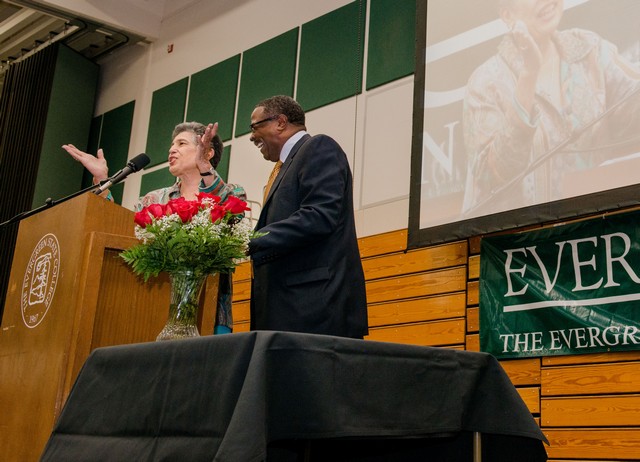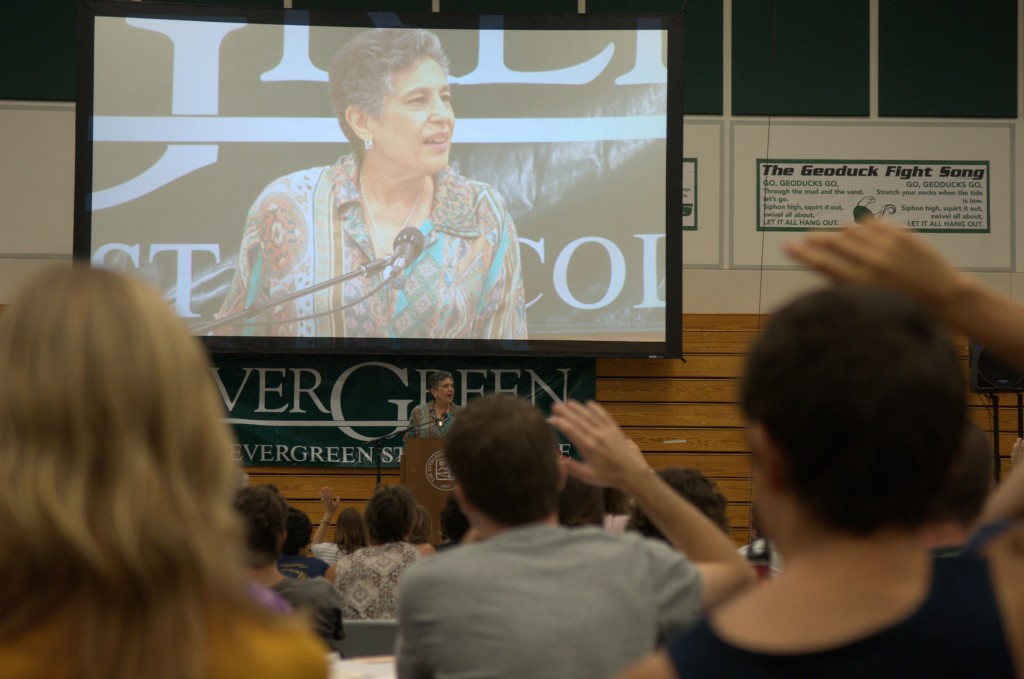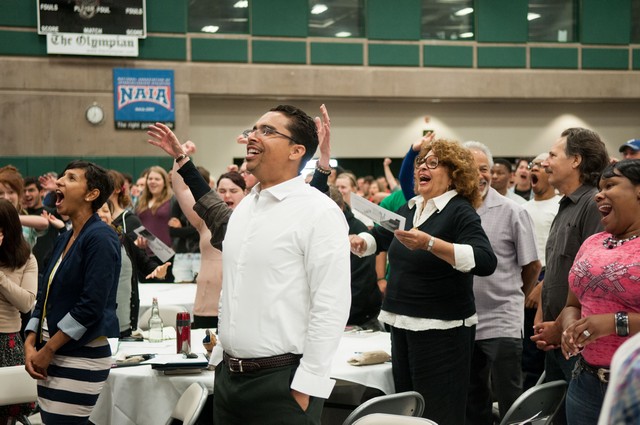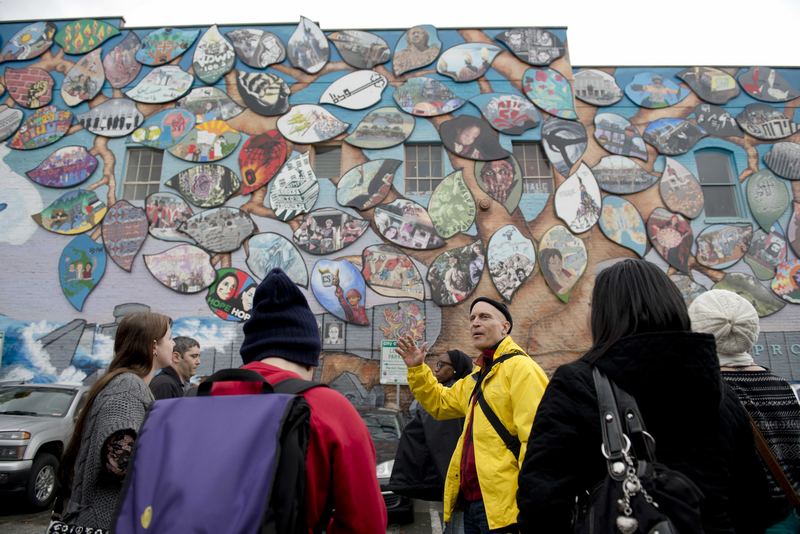
Member of the Faculty, Greg Mullins discusses the Olympia-Rafah Solidarity Mural with Evergreen students in downtown Olympia. Greg explores literature and human rights in his research and teaching. Photo taken by Shauna Bittle
Editor’s Note: We recently asked Greg Mullins, Member of the Faculty, to write a piece about his research into human rights and literature. He is the author of Colonial Affairs: Bowles, Burroughs, and Chester Write Tangier. Greg is currently working on a project called The Banality of Good: Cultures of Human Rights and teaching a program called Freedom Dreams: The Cultural Revolutions of the 1960’s.
Greg Mullins: When I first read John Milton’s Paradise Lost many years ago, I noted an irony much commented upon by literary scholars: as heroes go, Adam is anemic at best. Lucifer, the villain, has all the star power. In fact, many readers find him powerful and charismatic.
Ordinarily, wouldn’t we expect villains to be vile?
Over several years of teaching and writing about human rights and literature I’ve often thought about that irony. In a morality tale, the good guy wins and the narrative offers a moral lesson to the readers. But in a great deal of contemporary literature concerned with human rights violations, there is no simple moral to the story. Frequently, the text refuses closure, leaving the reader on her own to contemplate what to think upon finishing the book. Consider, for example, Coetzee, Waiting for the Barbarians, Ondaatje, Anil’s Ghost, or Danticat, The Dew Breaker.
Is it possible that reading literature concerned with human rights violations can nudge readers toward a better ethical and political understanding of why those violations happen, and what can be done to prevent them? I would argue that literature can serve that function. In fact, I argue that literature can provide a sort of antidote to the banalization of the language of human rights that we see all around us in political rallies, slogans, bumper stickers, fundraising appeals, and sound bites.
Not only does the act of reading literature force us to slow down and think, but the best of that literature challenges us to reevaluate what we think we know. A vile villain is easy to hate; a virtuous hero is easy to love. But why would we need to teach ourselves to think ethically if the world were as simple and unambiguous as a morality tale?
Readers: What’s your response to Greg’s questions? Can literature nudge us towards a better understanding of human rights violations?



